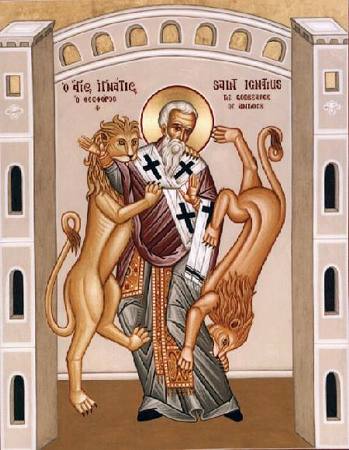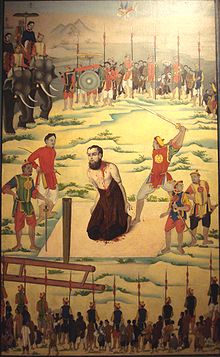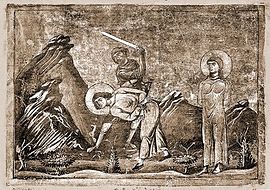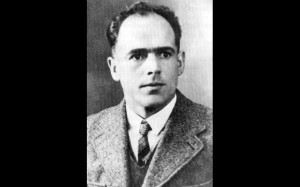Here are the seven letters of St. Ignatius of Antioch. Born in Syria, Ignatius converted to Christianity and eventually became bishop of Antioch. In the year 107, Emperor Trajan visited Antioch and forced the Christians there to choose between death and apostasy. Ignatius would not deny Christ and thus was condemned to be put to death in Rome.
Ignatius is well known for the seven letters he wrote on the long journey from Antioch to Rome. The excerpt below is from his letter to the Romans. He had some experience with soldiers, and compares them to leopards.
“All the way from Syria to Rome I am fighting with wild beasts, by land and sea, night and day, chained as I am to ten leopards (I mean to a detachment of soldiers), who only get worse the better you treat them. But by their injustices I am becoming a better disciple, ‘though not for that reason am I acquitted.’ What a thrill I shall have from the wild beasts that are ready for me! I hope they will make short work of me. I shall coax them on to eat me up at once and not to hold off, as sometimes happens, through fear. And if they are reluctant, I shall force them to it. Forgive me — I know what is good for me. Now is the moment I am beginning to be a disciple. May nothing seen or unseen begrudge me making my way to Jesus Christ. Come fire, cross, battling with wild beasts, wrenching of bones, mangling of limbs, crushing of my whole body, cruel tortures of the devil — only let me get to Jesus Christ!
Not the wide bounds of earth nor the kingdoms of this world will avail me anything. ‘I would rather die’ and get to Jesus Christ, than reign over the ends of the earth. That is whom I am looking for — the One who died for us. That is whom I want — the One who rose for us. I am going through the pangs of being born. Sympathize with me, my brothers! Do not stand in the way of my coming to life — do not wish death on me. Do not give back to the world one who wants to be God’s; do not trick him with material things. Let me get into the clear light and manhood will be mine. Let me imitate the Passion of my God. If anyone has Him in him, let him appreciate what I am longing for, and sympathize with me, realizing what I am going through.
The prince of this world wants to kidnap me and pervert my godly purpose. None of you, then, who will be there, must abet him. Rather be on my side — that is, on God’s. Do not talk Jesus Christ and set your heart on the world. Harbor no envy. If, when I arrive, I make a different plea, pay no attention to me. Rather heed what I am now writing to you. For though alive, it is with a passion for death that I am writing to you. My Desire has been crucified and there burns in me no passion for material things. There is living water in me, which speaks and says inside me, “Come to the Father.” I take no delight in corruptible food or in the dainties of this life. What I want is God’s bread, which is the flesh of Christ, who came from David’s line ;and for drink I want his blood: an immortal love feast indeed!






